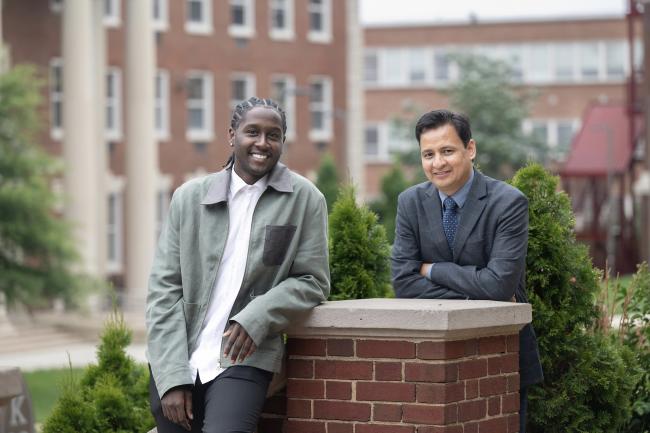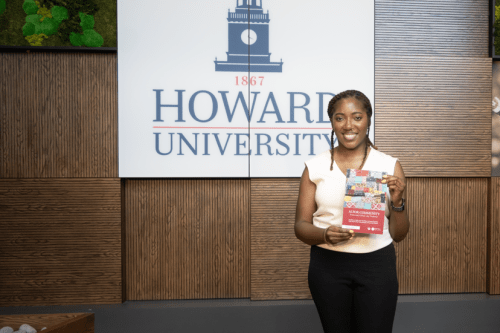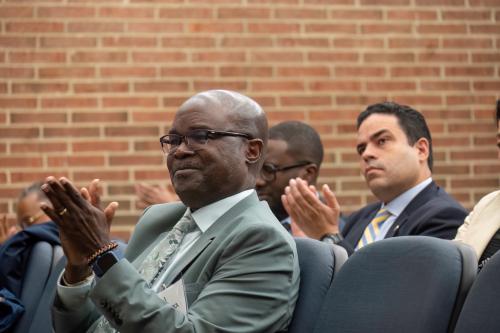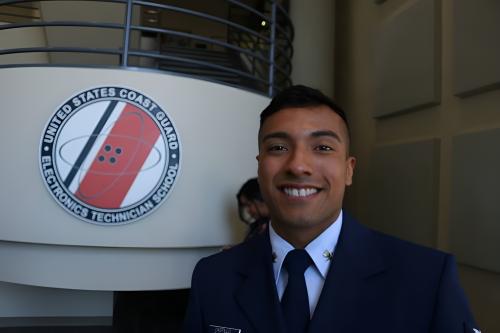It all started with a chance encounter on Howard University’s campus. Just after finishing his undergraduate degree at the University of Virginia in 2018, DeMarcus Edwards (M.S. ’20, Ph.D. ’24) was spending time at one of his favorite places to unwind when he struck up a spontaneous conversation with a faculty member.
“We were just generally talking, like this super nerdy conversation about adversarial machine learning,” Edwards said. The faculty member turned out to be Danda B. Rawat, Ph.D., associate dean for research and graduate studies and highly regarded as one of the best mentors at Howard University. Within two weeks, Edwards had joined Rawat’s lab as a master’s student.
That chance encounter launched a multiyear journey of mentorship, research, and professional growth. Edwards earned his master’s degree in computer science in 2020 and, with Rawat’s continued support, advanced into the Ph.D. program, which he completed in May 2024.
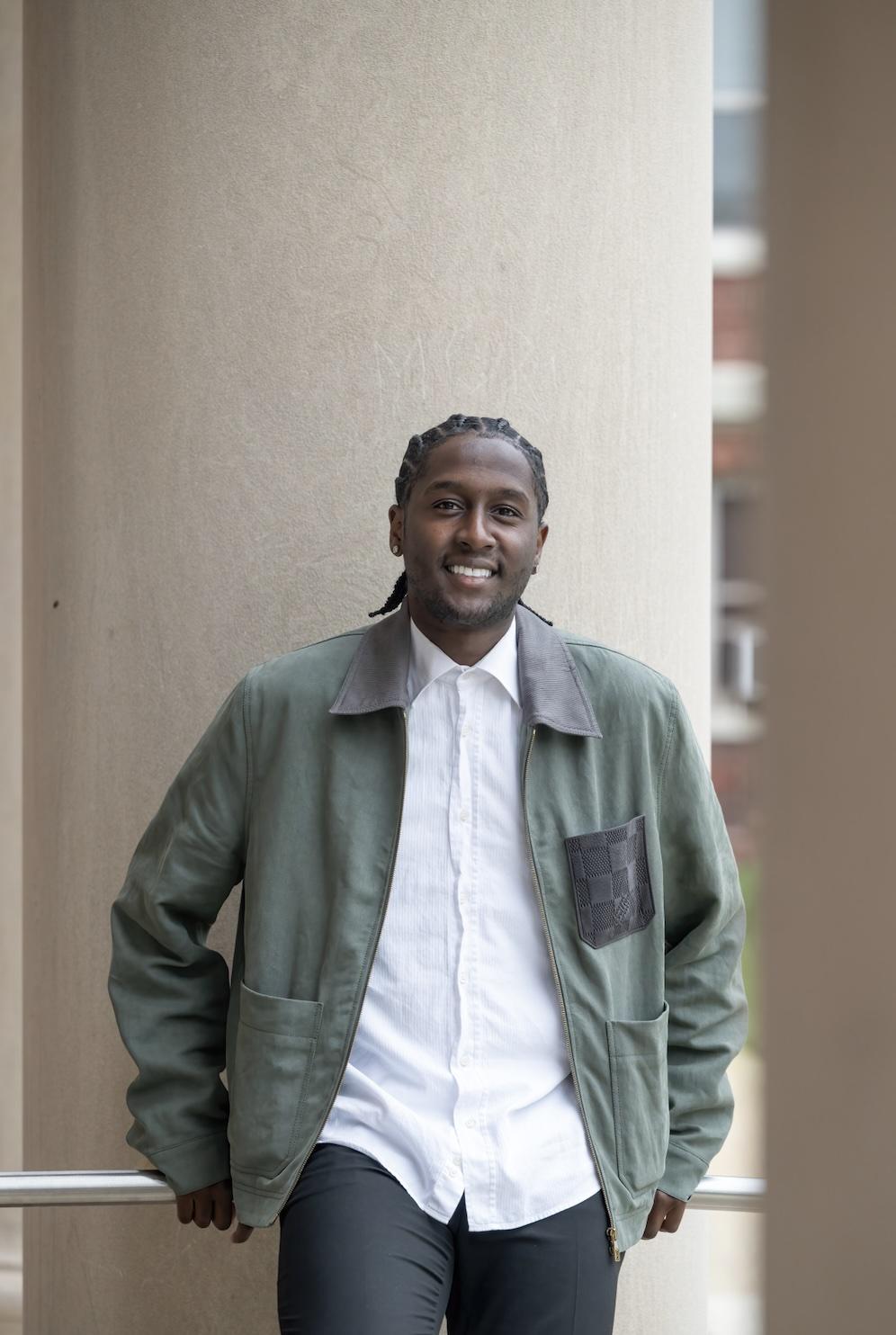
Along the way, the 30-year-old deepened his expertise in adversarial machine learning and completed industry residencies at Netflix, Apple, Meta, and Google X — experiences that sharpened his technical skills and exposed him to real-world AI challenges.
Today, Edwards is the co-founder of an Atlanta-based AI security startup, DARE Labs, that secured over $1 million in contracts last year. His journey reflects Howard University’s growing influence in tech innovation and its deepening ties to Silicon Valley. Through hands-on mentorship, cutting-edge research, and strategic industry partnerships, Howard is shaping the next generation of leaders in AI, cybersecurity, and machine learning. Edwards’ path shows how mentorship and research excellence are opening new frontiers for Black leadership in tech and entrepreneurship.
“People in the Valley have a lot of respect for Howard,” Edwards said. “I’d like that to be more well-known. There are tons of great computer scientists I know who came out of Howard.”
For both Edwards and Rawat, their partnership shows what’s possible when mentorship and advanced research come together—and when two people simply connect.
A self-described military brat, Edwards has family roots in Mount Vernon, Virginia, and a Howard connection through his grandmother, who worked as a nurse at the university hospital in the 1990s. Rawat is a professor of electrical engineering and computer science in the College of Engineering and Architecture and the founder and director of the U.S. Defense Department-sponsored Center of Excellence in Artificial Intelligence and Machine Learning, where he leads federally funded research on secure and trustworthy AI. Over the past decade, he has secured more than $110 million in funding from the Department of Defense and other agencies.
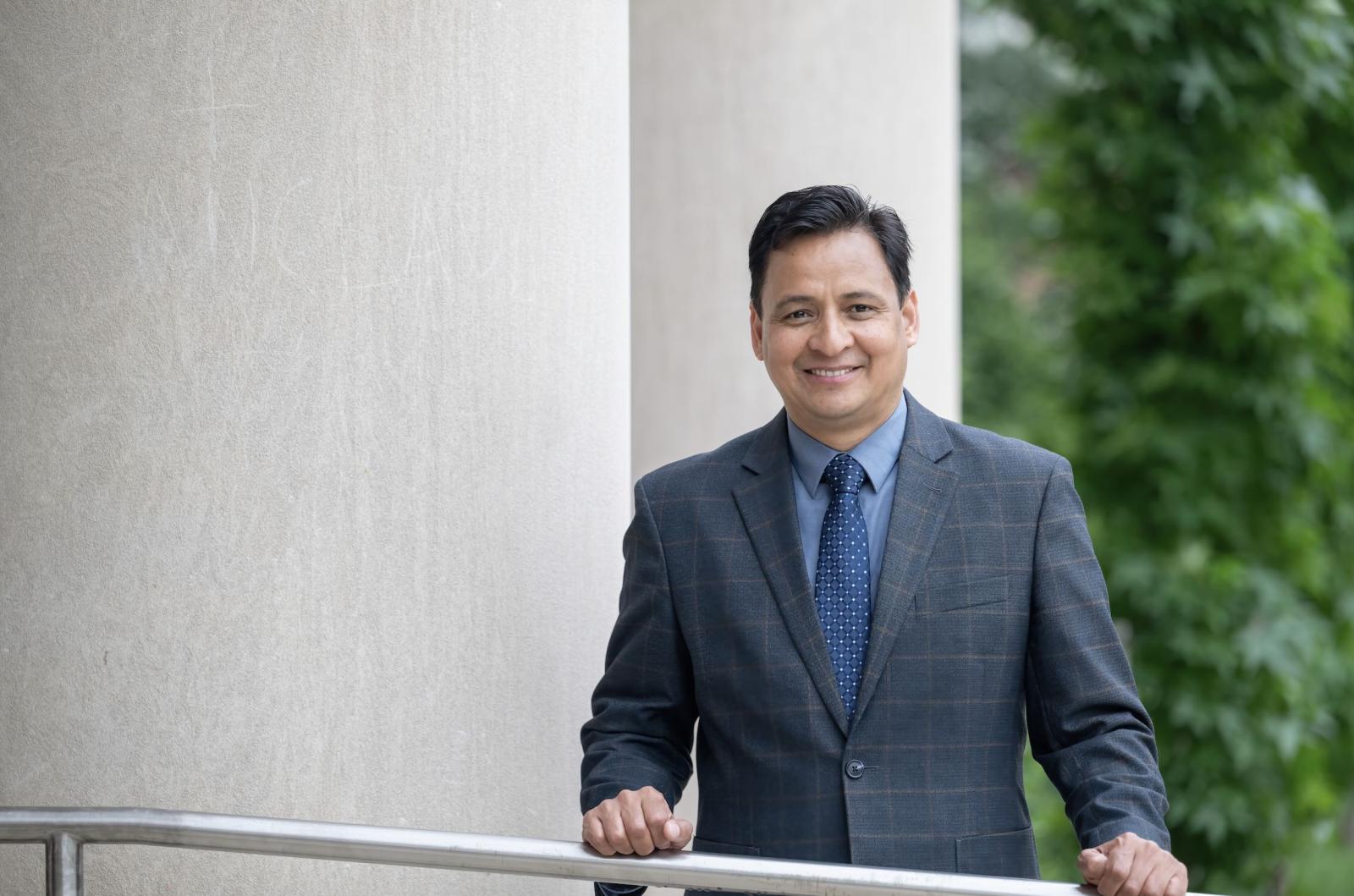
Rawat hopes Edwards will be seen as an example — a signature Howard student who might inspire others to pursue entrepreneurship. Rawat began mentoring Edwards during the master’s program and later supervised his Ph.D. research, which continued exploring the same focus: adversarial machine learning and robust AI security.
Rawat was recognized as one of three outstanding faculty mentors at Howard’s 2025 Research and Leadership Awards in April. In his approach, he draws a clear distinction between supervising a student’s doctoral work and the broader, more holistic responsibilities of mentorship.
“Supervision means guiding a student through their Ph.D. research, but mentorship goes beyond that,” Rawat said. “You mentor them through other things — like how to survive in the field, how to develop professionalism, how to apply for funding or write a thesis, and even how to establish a company. All those things extend beyond typical academic supervision.”
Rawat supported Edwards as his work increasingly focused on identifying and defending against attacks that manipulate artificial intelligence systems across different domains. Throughout his doctoral studies, Edwards contributed to several high-impact projects within Rawat’s Center of Excellence in Artificial Intelligence and Machine Learning.
Edwards says of Rawat, “Dr. Rawat’s always been the guy in my corner. Dr. Rawat was always there.”
Where Edwards really started to take off was when Rawat began connecting him with people in the field he was working in, giving him important industry experience. As a doctoral student, Edwards gained hands-on training through competitive residencies and internships at leading tech companies. In 2020, he was one of the first participants in the Netflix HBCU Tech Mentorship pilot program, which led to a residency where he worked on machine learning projects focused on content personalization. He later completed internships at Apple and Meta, contributing to innovations in action recognition for iPhones and video recommendation systems for Instagram Reels.
Federal research funding, collaborations with industry partners, and support from external advisory board members of the centers led by Rawat have played a key role in building strong connections between the university, high-tech companies, and government laboratories. These efforts reflect the kind of high-impact research and engagement that helped Howard University earn its prestigious Research One (R1) Carnegie Classification this year.
These experiences exposed Edwards to real-world challenges in artificial intelligence and shaped his desire to build tools with broader impact. His work eventually brought him to Google X, where he joined a team developing an AI-assisted exoskeleton. The team was later disbanded in a round of layoffs — an experience that sharpened his resolve to launch his own company alongside his best friend Branford Rogers.
When Edwards shared his plans, Rawat didn’t hesitate to back him.
“I told him that it was a great idea — explore it.’ And now he’s done that. Congratulations to him.” Rawat said.
Edwards, in building a company, said he realized he could fill a niche.
“I wanted to bring AI into products. The DOD, DOE, NIH — they need AI expertise. That’s how my company started.”
The Atlanta-based startup, with clients in San Francisco and D.C., helps government agencies turn unstructured documents — like PDFs and reports — into knowledge graphs for search and for training new machine learning models. Edwards likened the system to an org chart, explaining that it makes information easier to access and speeds up the search process.
“We take customer data and build knowledge graphs so it’s easy to use in AI applications,” Edwards said. “Our bet is that with everyone investing in AI, the real gain will come from how well you structure things. It’s like cleaning your room so you can find your phone.”
In its first year, Edwards’ startup brought in $1.2 million in contracts, working with major clients like the Department of Defense and Department of Energy. The company continues to grow, even amid shifting federal priorities and uncertain tech funding.
Looking back, Edwards still thinks about that first conversation with Rawat that set everything in motion.
“There’s an intellectual curiosity at Howard I haven’t found in many places,” he said. “People take the time to talk, even outside. It’s a special place. Sometimes, all you need is someone to believe in you and walk with you while you figure it out.”
###


